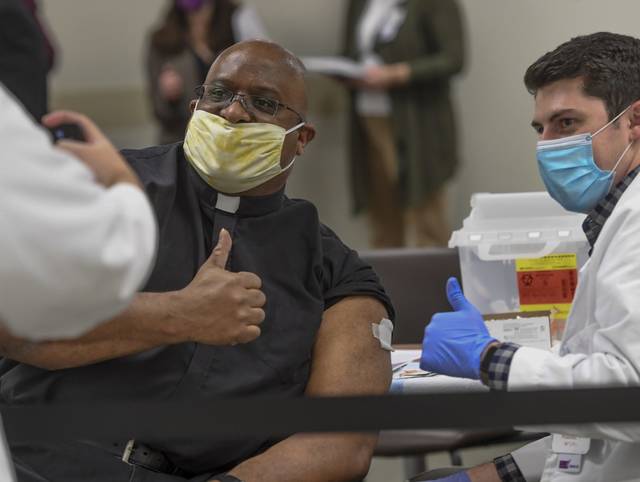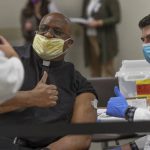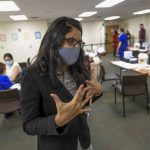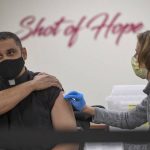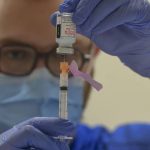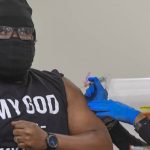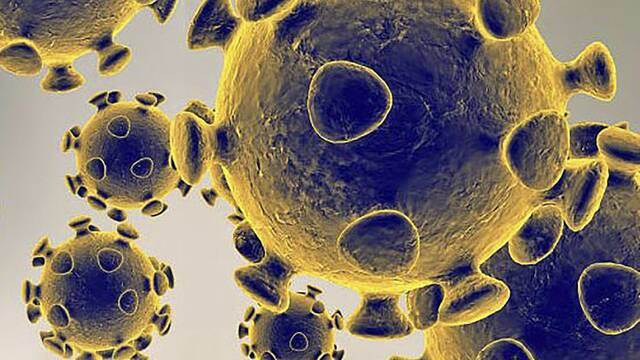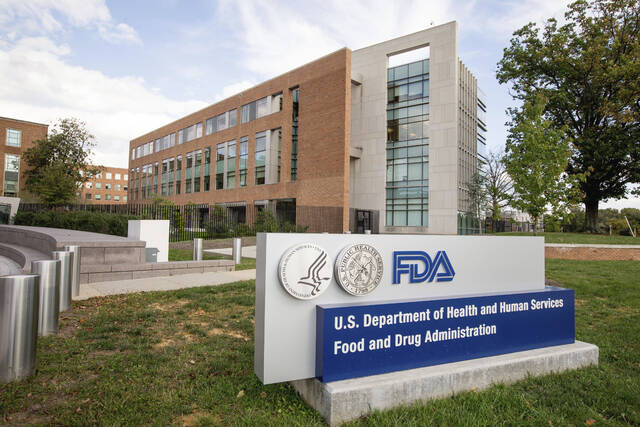Spirits were high in the large, bustling room on the ground floor of UPMC Mercy Outpatient Center in Pittsburgh’s South Side neighborhood, as dozens of people received their first covid-19 vaccine dose.
“These folks are out there going door to door, trying to implement epidemiological protocols in communities that really have been left behind in the pandemic,” said the Rev. Paul Abernathy, leader of the Neighborhood Resilience Project and one of the group’s many members to be vaccinated Tuesday. “The most extraordinary thing is: They haven’t so much scaled back their work. They have really put themselves at pretty severe risk.”
As UPMC inoculates health care workers as part of Phase 1A in the state’s covid-19 vaccine guidelines, the system said it is further prioritizing groups that work in underserved and minority communities.
Health care workers who aren’t affiliated with a hospital can sign up to be vaccinated by filling out a form on UPMC’s website, said Allison Hydzik, a UPMC spokeswoman. Workers who serve the marginalized or underserved are placed at the top of the list, she said.
Covid-19 has disproportionately affected communities of color since early in the pandemic. Nationwide, according to the Centers for Disease Control and Prevention, covid hospitalizations among Black, Indigenous and Hispanic or Latino people are about quadruple that of white Americans, and deaths are more than double.
In Allegheny County, Black residents make up 23% of hospitalizations despite making up only 13% of the population, suggesting more severe infections with the virus, according to county data.
The Neighborhood Resilience Project has been on the front lines in predominantly-Black communities in Pittsburgh since the beginning of the pandemic. Based in the Hill District, the organization provides community support to areas affected by gun violence, racism, health disparities and other traumas.
Throughout 2020, members of the group have promoted education on health and safety guidelines, encouraged people to wear masks and follow social distancing protocols and recruited volunteers for vaccine trials, lobbying for confidence in the vaccine in a demographic that is often hesitant to receive it.
“We know there’s a lot of vaccine mistrust that’s pretty well-earned and rooted in racism and legacies of trauma,” said Dr. Maya Ragavan, a health equity expert and pediatrician at UPMC.
Ragavan said the hospital system connected with various community health groups through a group called Community Vaccine Collaborative, which includes community leaders, researchers and health professionals.
“(Community health workers) are a really important part of our health care system,” Ragavan said. “They are incredibly trusted within their communities and they do health-related work in their communities on a daily basis. And so when they get vaccinated, because they’re so trusted, other community members will be able to talk with them and they’ll be able to share their story.”
Tuesday’s vaccine clinic was another opportunity to build that vaccine confidence, Abernathy said.
“I would encourage people to get the vaccine as soon as they’re eligible so that we can save as many lives as possible,” he said. “We know that this vaccine is scientifically safe. I’m receiving this vaccine today as a way to reinforce my belief that this vaccine is safe.”
“This is killing nearly three times as many people in African American communities as it is in white communities,” he continued. “This is our chance to really save lives and do our part to work ourselves out of this pandemic.”
Dr. Alfred L’Altrelli, administrative director of pharmacy at UPMC Presbyterian who is leading the system’s South Side vaccination effort, said the clinic was a “thoughtful approach” after UPMC physicians noticed a clear gap in the distribution of vaccines on the state Department of Health website.
“We had a lot of strategy behind how we wanted to implement things,” L’Alrtrelli said. “We really wanted to make sure we took a thoughtful approach to make sure there is a fair and equitable distribution of vaccine to people.”
Along with the Neighborhood Resilience Project, members of the Violence Prevention Initiative and Casa San Jose, which both work with underserved communities in Pittsburgh, also received shots Tuesday, as well as a plethora of other health care workers not affiliated with UPMC.
L’Altrelli said the vaccination site at Mercy has the infrastructure to inoculate up to 2,000 people per day, if supply from the state remains steady.


